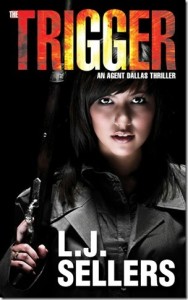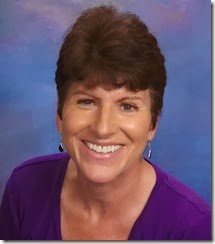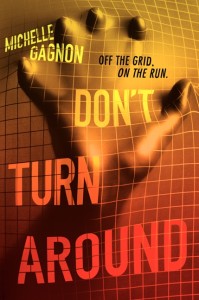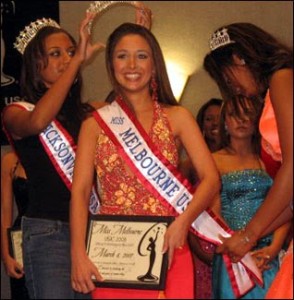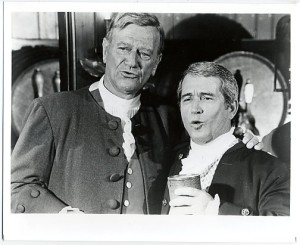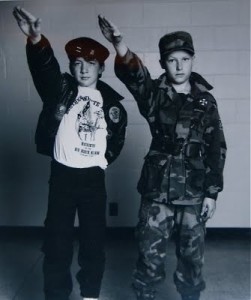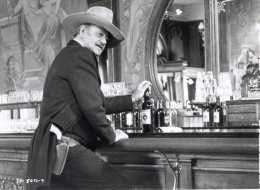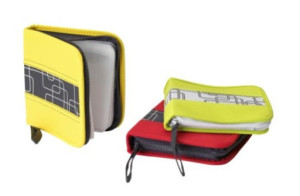
Photo credit: Danny Howe-Unsplash
by Debbie Burke
I’ll confess right up front. I like writing contests. A lot.
They’re not for everyone but they’ve helped my career.
Why enter writing contests? Here are six reasons:
- Contests are incentives to finish your work and submit it to the outside world;
- Some offer valuable critique and feedback;
- Encouragement, recognition, and validation;
- Money and/or prizes;
- Awards help marketing;
- Intangible rewards.
Writers are often timid about sending their stories out into the world.
Contests however aren’t quite as scary as cold-submitting to agents and editors. You pay an entry fee and judges read your short story, novel excerpt, or screenplay. Some contests offer critiques to improve your craft and pinpoint what needs work.
If you don’t win, heck, neither did most other entrants so it’s not that humiliating.
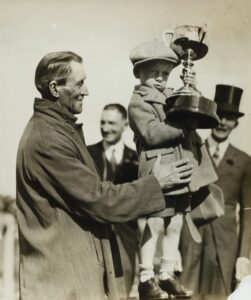
Photo credit: Museums Victoria-Unsplash
If you do win, terrific! That recognition boosts confidence and increases credibility when you approach agents and publishers.
There are many reputable contests, but others are questionable or downright dodgy.
Please note: contests mentioned in this post are not endorsements or recommendations.
Contests may be opportunities for the sponsor to expand their mailing list, offering their advertising and marketing services.
Some competitions require the author to give up all rights to their work. What happens if you create a character who later becomes a merchandising goldmine? Depending on contest terms, your earnings may be limited to a one-time cash prize with no rights to future royalties. Victoria Strauss’s article cites a contest that solicits writers who want to become Manga scriptwriters. She writes:
Copyright surrender in a work-for-hire situation isn’t necessarily a “beware”, as long as the contract terms aren’t exploitative and you understand the implications of what you’re agreeing to.
In this case, however, the one-time money prize is the sole compensation you’ll receive for your copyright transfer, from which [the sponsor] can then profit indefinitely. Be aware also that if you win and your script does not get developed into a series, [sponsor] will still own your work. Winning, therefore, has potential benefits–but also potential costs.
Before entering, check out contests with reliable sources like Writer Beware, The Write Life, Poets & Writers, ProWritingAid (this list is a year old and may be out of date), Kindlepreneur, Alliance of Independent Authors (ALLi).
Run a Google search entering “[name of contest] scam” and look for red flags.
Before entering, always, always, always read the fine print.
What about entry fees? They typically range from free to $100+.
High entry fees raise questions:
- Is the contest’s purpose to recognize excellence?
- Or is this another scheme to take advantage of writers?
Valid reasons for higher fees are:
- Pay honorariums to judges;
- Fund prizes;
- Support nonprofit organizations that help writers.
Research the contest, then use your own judgment whether or not the fee is worth it.
On the other end of the spectrum, “free” isn’t necessarily free.
You’ve seen the ads in magazines and online popups. Aspiring writers, especially poets, are seduced by dreams of publication and thousands of dollars in prizes.
Reality check: nobody, nowhere, nohow pays big bucks for poetry.
But it doesn’t cost anything so why not?
When you enter these contests, sponsors are thrilled to notify you that your outstanding poem was one of a select few that will be featured in their anthology. And…a beautiful gold-embossed hardcover with your published poem only costs $59.95. You can proudly pass this heirloom down to your grandchildren. In fact, buy a copy for each grandchild! And the rest of your family, and friends, and neighbors, and coworkers, and the mail carrier…
You get the idea. Such contests have endured for generations. Why? Because they make money from the dreams of writers who are hungry to be published.
Many legitimate contests are out there. Here’s the Urban Writer’s list of most prestigious awards.
Contests affiliated with writing organizations and conferences can be great career springboards because judges are often agents and editors. Examples:
- Mystery Writers of America – St. Martin’s Minotaur contest for first novels; Edgar Award;
- Killer Nashville – Silver Falchion Award;
- Rocky Mountain Fiction Writers – Colorado Gold;
- Women’s Fiction Writers Star Award;
- Eric Hoffer Book Awards.
Speaking of judges, here’s a little-known trick to give you insight into contests.
Volunteer to be a judge.
You don’t have to be Margaret Atwood or Dean Koontz to judge. Some writing organizations actively solicit their members to be volunteer judges. If you are a member of a group, you may qualify.
Reading and assessing entries takes a lot of time. Some contests pay small honorariums.
A few contests I’ve judged are Rocky Mountain Fiction Writers, Pikes Peak Writers, Authors of the Flathead Student contest, etc. Several TKZers have judged the Edgars, Agathas, and Nebulas. Please chime in with your experience.
As a judge, you’ll receive score sheets of criteria that show exactly what qualities and skills contests are looking for. Not coincidentally, those are the same qualities and skills editors and agents seek.
Scoring may be done numerically, by written critiques, or a combination of both.
As a judge, you gain a much broader perspective than the writer’s often-narrow point of view.
After reading a few entries, you notice a wide disparity among them, ranging from:
- Downright awful, sloppy ones that weren’t even run through spellcheck;
- Grammar? I don’t need no stinkin’ grammar;
- Needs work but shows promise;
- Professionally presented with competent writing skills but not compelling or imaginative;
- A very few are OMG WOW!!!
Reading entries gives you a taste of what editors and agents go through every day when reviewing submissions. That added insight will help you pitch and submit more effectively.
Especially study the OMG WOWs. Figure out what the author did and how they did it. Learn from their strengths. Analyze how they handle pacing, point of view, and critical scenes. What makes their voice special and unique? How do they create a character you’re eager to spend time with and get to know better?
Then apply those lessons to your own writing.
My personal experience with contests began in the 1990s, when I entered the Colorado Gold contest, sponsored by Rocky Mountain Fiction Writers. I won the mystery category. As a result, an agent at the conference offered representation. Although we later parted ways and that book was never published, winning the contest was a major boost for my career that led to freelance work, editing jobs, and great friendships (more about intangible rewards in a minute).
In 2016, I entered the contest sponsored by the Pikes Peak Writers Conference. My thriller, Instrument of the Devil, won the mystery/suspense category.
Momentum from that propelled me to enter the Kindle Scout contest, sponsored by Amazon. Book excerpts were posted online, and readers voted for ones they wanted to see published. IOTD was selected. I received an advance and Kindle Press published the book that became a bestseller in Women’s Adventure. I
I was on my way to fame and fortune, right?
Uh, no. A few months later, Amazon closed down the Scout contest and the Kindle Press imprint was shuttered, leaving me orphaned.
But I’ll always remember they gave me that opportunity and I’m grateful.
My other books have been finalists for the Eric Hoffer award (Flight to Forever) and Best.Thrillers.com (Until Proven Guilty).
Can you tell I like contests?
Most recently, I entered my latest thriller Deep Fake Double Down in the BookLife Prize contest sponsored by Publisher’s Weekly for indie books.
The contest receives hundreds of entries in five categories: general fiction, romance, YA, sci-fi/fantasy/horror, and mystery/thriller. Entry fee of $119 is high but includes a critique that authors are free to use for their own promotion.
The grand prize is $5000. Finalists in each category receive a $1000 marketing package.

Photo credit: Joyful-Unsplash
In November, Deep Fake Double Down advanced from quarterfinals to semifinals. Yaay!
Then in December I learned DFDD was the mystery/thriller finalist. BookLife magazine featured interviews with each of the genre finalists.
Although I don’t generally count my chickens until they’re fried, I started to fantasize about how I’d spend $5000. Hire a publicist for dreaded marketing. Go on book tours. Attend Thrillerfest in NYC.
Well…
Deep Fake Double Down didn’t win the grand prize. The winner was Downpour, a horror novel by Christopher Hawkins. I just read it and it’s beautifully written, compelling, and terrifying, Congratulations, Chris!
Bu I gotta confess a little envy. I really would’ve liked to attend Thrillerfest.
However, I’ll still receive the $1000 marketing package. In the long run, that might be more valuable since I need all the help I can get with marketing.
Now, about those intangible rewards I mentioned earlier. Through contests, I’ve met writers who became friends, made lasting contacts with editors and agents, received invitations to speak, etc. When you put your work out in the world, you never know where it may take you.
Back in the ’90s when my book was a finalist for Colorado Gold, I flew to Denver for my first Rocky Mountain Fiction Writers conference. At that time, it was biggest writing event I’d ever attended. I was intimidated, not knowing a soul among 400+ attendees.
One of the anonymous judges had scored my book a perfect 10. At the conference, I learned her name was Julie Kaewert, author of the Alex Plumtree series and a novelization of The Avengers movie. She graciously introduced me to many fellow mystery authors and her critique buddies who made me feel welcome and right at home.
At the banquet dinner, winners were announced in various categories and all received applause.
Then my name was announced. Wild whoops, hollers, and whistles erupted from tables full of my new friends.
I turned redder than the tomatoes on the salad.
I still cherish the memory.
From that contest, close friendships were born that endure to this day. Several became trusted critique partners and beta readers.
Contests give me much-needed reassurance that writing is worthwhile in spite of disappointments and setbacks.
Are contests good for you? Enter a couple and find out. Then come back to TKZ and share your news.
A big thank you to Elaine Viets who suggested this post!
~~~
TKZers: What contests have you entered? Did they change your writing? Which contests do you recommend?
~~~
Read the mystery/thriller finalist for the BookLife Prize at this link. 

